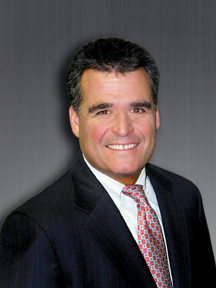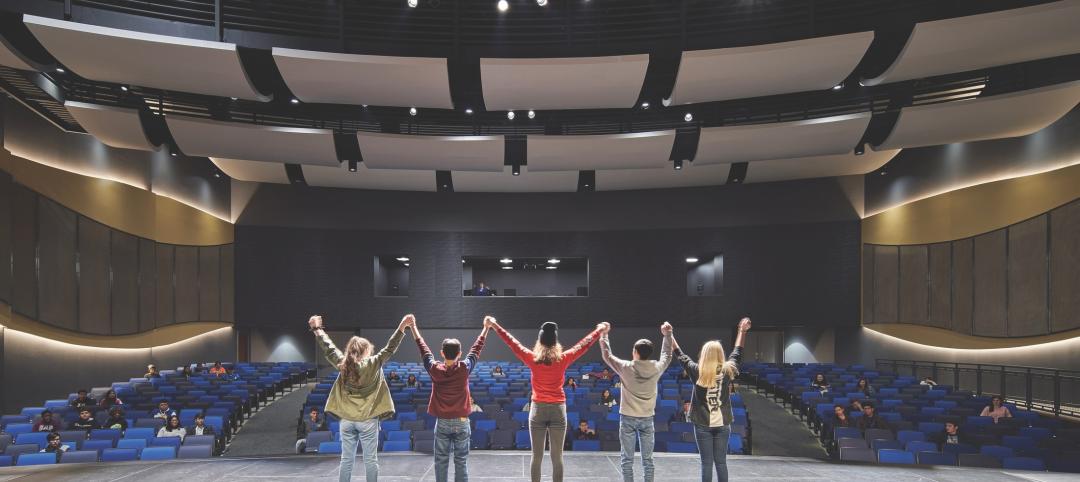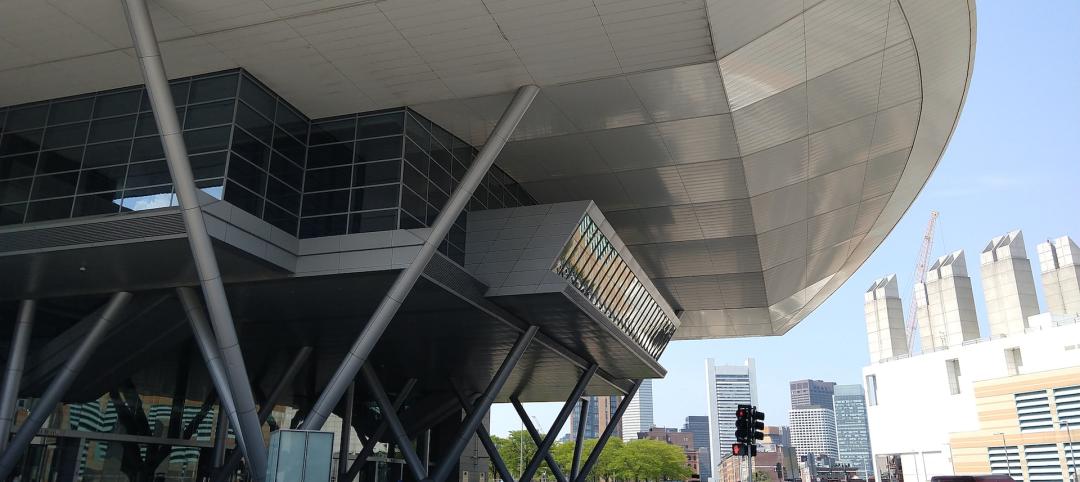BD+C: What are the chief initiatives for BOMA in the coming year?
Boyd R. Zoccola: Our theme for the year is achieving high performance through innovation. One area is recruiting young professionals into real estate management. We’ve got a lot of young people in university real estate programs that want to be owners and entrepreneurs but may not be aware of careers in the day-to-day operations of property management—asset management, interacting with tenants, setting budgets, etc.
Our industry has an aging management group, and we need to reach out to the young people who will be carrying the water in our business through 2025. Our Thought Leaders Symposium at Georgetown University November 10 (www.boma.org/about/bomafoundation) is designed to make them aware of property management as a career.
Another area is benchmarking tools. We’re coming up on the end of the BOMA 7-Point Challenge, to make buildings 30% more efficient than the mid-level (50) building in Energy Star. It’s been a great success, with more than 3,000 buildings and 800 million square feet sharing their data with BOMA. Members like CBRE and USAA are already well beyond the 7-Point Challenge. BOMAStars is a tool to share the data, which will allow us to talk objectively to legislators or mayors about the positive strides we’re making.
BD+C: What national issues will BOMA be pursuing in the coming year?
BRZ: From a tax standpoint, the 15-year timeline for depreciating leasehold improvements expires at the end of the year; left unchanged, it reverts to 39 years. We think 15 years is a more realistic picture of the marketplace, and we want it to be made permanent.
We’re also concerned about an EPA initiative to require the removal of lead-based paint in office buildings. We don’t think there’s been enough study to justify that. The EPA is also considering treating stormwater runoff from office sites. We don’t think buildings are point sources under the Clean Water Act.
BD+C: What are the greatest concerns of BOMA members at this time?
BRZ: The economy is number one, of course. But, based on our research, we now know that work/life balance is number two. We didn’t even hear about that four years ago. All our members are being asked to do more with less, but there’s only so much time in the day, so how much time can they give to BOMA? That’s a concern for us as an organization.
Tenant retention is a big issue for members. It’s much easier to keep a tenant than to replace one. Having vacancies is the easiest way to decrease asset value. Our members are making improvements that tenants can see on a daily basis—common areas, restrooms, corridor finishes—to make sure their buildings are crisp and clean and don’t feel old. They’re making improvements with a two-year payback, but it’s the five- and 10-year paybacks where the overall cost just doesn’t make a business case, at least not without incentive dollars.
BD+C: How is the BOMA 360 program doing?
BRZ: BOMA 360 is about holistic best practices, how well you run your building with the systems that you have—standard operating procedures, emergency preparedness, Energy Star benchmarking, data sharing, etc. It’s just two years old, and we already have 300 certified buildings. Surveys are showing that 360 buildings are getting higher marks in tenant satisfaction than other buildings. When you look at the other designation programs out in the marketplace, we’ve exceeded all but one, LEED.
BD+C: When is the U.S. office market going to turn around?
BRZ: It’s kind of the haves and the have-nots. D.C., New York, San Francisco, Boston, they’re all doing very, very well. There are some other pockets, but for most BOMA members, our recovery is directly tied to jobs, and until we can reduce unemployment, we’re not going to see a turnaround in the office market.
Medical continues to be a strong sector across the country—MOBs, surgical centers, imaging, oncology, outpatient services. Mixed-use properties are becoming more prevalent, and we think they’re going to flourish.
BD+C: What’s your biggest business-related worry?
BRZ: From our company’s perspective, it’s how best to manage the inflation risk that we perceive as coming in the marketplace. We think it’s going to happen.
The other has to do with staff retention. Over the last three years, we asked people to go without raises and employer contributions to 401(k) plans. I believe that many BOMA members, large and small, are trying to manage their staff retention, to make up for the cuts of the last three years.
BD+C: How can BD+C readers—architects, engineers, and contractors—work more effectively with BOMA members as clients?
BRZ: From a personal perspective, I’m buying those services based on quality of service and ability to deliver on time; price is in third place. It’s all about timing, and you might be one of the three or four firms that I throw into an RFP process. I don’t shotgun out an RFP to 20 firms.
Now’s the time to market within your niche. Don’t try to be everything to everyone. We hear from a lot of firms who want to do medical buildings but have no experience, and they wonder why we don’t pick them.
Make sure that you’re marketing to multiple people within a company. If that one person at the top goes, you’re vulnerable. Make sure that if you have a transition in a client organization, you can survive a CEO change.
Finally, it’s the last 2% of every job that’s the most difficult, and that’s the time to finish strong. Don’t give your client any reason to make a change. BD+C
Related Stories
Sponsored | BD+C University Course | Jan 17, 2024
Waterproofing deep foundations for new construction
This continuing education course, by Walter P Moore's Amos Chan, P.E., BECxP, CxA+BE, covers design considerations for below-grade waterproofing for new construction, the types of below-grade systems available, and specific concerns associated with waterproofing deep foundations.
Sponsored | Performing Arts Centers | Jan 17, 2024
Performance-based facilities for performing arts boost the bottom line
A look at design trends for “budget-wise” performing arts facilities reveals ways in which well-planned and well-built facilities help performers and audiences get the most out of the arts. This continuing education course is worth 1.0 AIA learning unit.
Giants 400 | Jan 15, 2024
Top 130 Hospital Facility Architecture Firms for 2023
HKS, HDR, Stantec, CannonDesign, and Page Southerland Page top BD+C's ranking of the nation's largest hospital facility architecture and architecture engineering (AE) firms for 2023, as reported in the 2023 Giants 400 Report.
Airports | Jan 15, 2024
How to keep airports functional during construction
Gensler's aviation experts share new ideas about how to make the airport construction process better moving forward.
Adaptive Reuse | Jan 12, 2024
Office-to-residential conversions put pressure on curbside management and parking
With many office and commercial buildings being converted to residential use, two important issues—curbside management and parking—are sometimes not given their due attention. Cities need to assess how vehicle storage, bike and bus lanes, and drop-off zones in front of buildings may need to change because of office-to-residential conversions.
MFPRO+ News | Jan 12, 2024
As demand rises for EV chargers at multifamily housing properties, options and incentives multiply
As electric vehicle sales continue to increase, more renters are looking for apartments that offer charging options.
Student Housing | Jan 12, 2024
UC Berkeley uses shipping containers to block protestors of student housing project
The University of California at Berkeley took the drastic step of erecting a wall of shipping containers to keep protestors out of a site of a planned student housing complex. The $312 million project would provide badly needed housing at the site of People’s Park.
Giants 400 | Jan 12, 2024
Top 10 Casino Architecture Firms for 2023
JCJ Architecture, HBG Design, Gensler, and WATG top BD+C's ranking of the nation's largest casino architecture and architecture engineering (AE) firms for 2023, as reported in the 2023 Giants 400 Report.
Senior Living Design | Jan 11, 2024
Designing for personal technology is crucial for senior living facilities
Today’s seniors are increasingly tech savvy. It isn’t enough to give senior living residents a pre-determined bundle of technology and assume that they’ll be satisfied.
Giants 400 | Jan 11, 2024
Top 40 Convention Center Architecture Firms for 2023
TVS, Populous, Arcadis North America, Gensler, and EUA top BD+C's ranking of the nation's largest convention center and event facility architecture and architecture engineering (AE) firms for 2023, as reported in the 2023 Giants 400 Report.
















